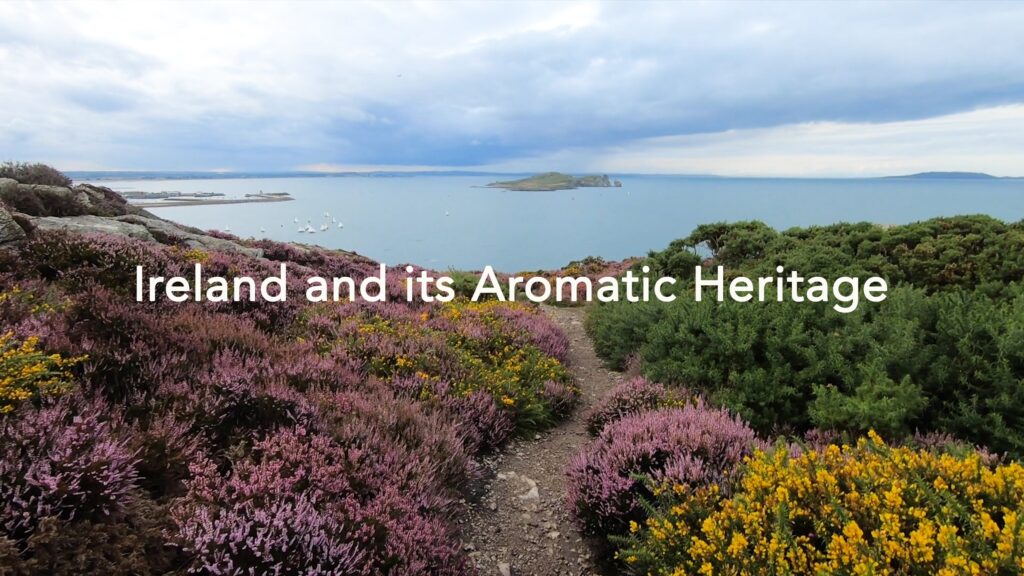
World Sensorium: Crafting Action Today for a Better Tomorrow
By Dr Anita McKeown, FRSA, FIPM, MEI
Sign up for our monthly newsletter!
A
s we face mounting sustainability challenges, heightening your environmental awareness is critical. What is the potential for sensory experiences to engage us with a deeper connection that could heighten our environmental consciousness?
The World Sensorium Conservancy (WS/C) has championed this sensory approach for 25 years, crafting a narrative that connects people to their cultural and ecological heritage through the power of aromatic plants. This November, the World Sensorium: Ireland project was launched as part of Climate | Ceardaíocht, Cahersiveen, County Kerry’s first climate literacy festival. “Ceardaíocht”, the Irish word for craft, formed the foundation of the festival’s aims: “Crafting Action Today for a Better Tomorrow.” The event introduced and expanded climate literacy through talks, art projects, films, and hands-on workshops. The festival aligned locally with the United Nations Climate Change Conference, COP29 in Azerbaijan, leveraging the global focus for local conversations.
Within this context, World Sensorium celebrated its 25th anniversary, initiating an exploration of Ireland’s rich olfactory heritage while addressing pressing climate concerns and environmental challenges.
Founded by interdisciplinary artist and scientist Dr. Gayil Nalls, the World Sensorium project has been a pioneering initiative uniting art, culture, and science through scent. From its UNESCO-endorsed debut in Times Square on New Year’s Eve 1999 to its ongoing exploration of global olfactory heritage, the project acts as a beacon for biodiversity preservation. By identifying culturally significant plants worldwide and blending them into the global “world scent,” the initiative activates conversations about the value of aromatic plants for humanity.
In an era of biodiversity loss and ecosystem collapse, World Sensorium highlights the intricate relationships between natural and cultural heritage, and in turn, between ecology, society, and its social dynamics. The project’s original composition even included the evocative scent of peat, emblematic of tradition and ecological complexity. Now, World Sensorium: Ireland extends this aromatic legacy while emphasizing the urgent need for sustainable practices.
The Irish launch in Cahersiveen on November 16, 2024, featured talks, sensory experiences, open discussions, and a national mind-rewilding campaign to “Vote for Your Favorite Aromatic Plant.” Notable speakers included Mary Nolan, a civil engineer and educator from Atlantic Technical University, Sligo; Vincent Hyland, a naturalist, media artist, wildlife photographer, and author; and Dr. Breandán O’Caiomh, a human geographer. Together, they explored the cultural aspects of bog life, eco-social farming practices, and the socio-economic history of large-scale peat extraction in Ireland.
Visitors experienced the World Sensorium’s 2025 “world scent” while sharing reflections and emotions, which highlighted the importance of sensory connections in fostering environmental awareness. These discussions naturally led to considerations of a just transition for peatland conservation—a dual approach to climate mitigation and adaptation.
Peatlands are crucial for climate adaptation, serving as carbon storage powerhouses, natural water regulators, and biodiversity hotspots, while also holding cultural significance. Peatlands cover only 3% of the Earth’s surface but store twice as much carbon as all the world’s forests combined (UNEP, 2019). Left undisturbed, they act as carbon sinks, sequestering greenhouse gases and mitigating climate change. However, drained or degraded peatlands release stored carbon, exacerbating global warming.
Healthy peatlands also function as sponges, absorbing rainfall and reducing flood risks while maintaining water flow during dry periods. In regions like County Kerry, where intense rainfall and flooding are common, these ecosystems offer vital water security. Furthermore, peatlands are home to unique species like sphagnum moss and specialized fauna, which ensure ecosystem resilience amid climate stressors.
Despite their ecological value, peat extraction has long been a contentious issue in Ireland, symbolizing both cultural tradition and environmental degradation. This tension underscores the importance of initiatives like World Sensorium, which foster conversations about balancing heritage with sustainability.
Ireland has taken steps toward this balance through its National Peatlands Strategy (2015), seeking to restore degraded ecosystems into carbon sinks and ecotourism destinations. Rewetting and replanting these areas prevent further emissions, enhance biodiversity, and support water retention. However, challenges remain, with Ireland’s Climate Change Advisory Council (2024) warning that the country risks falling short of its emissions targets for 2026–2030.
World Sensorium: Ireland also facilitated broader conversations about biodiversity restoration and sustainable practices. Attendees learned about aromatic plants as ecological landmarks, supporting pollinators, stabilizing ecosystems, and promoting soil health. A public participatory campaign encouraged citizens to vote for their favorite aromatic plants, creating a democratic engagement that blended cultural preservation with environmental awareness.
This ethos of conservation through collective action reflects a model of resource circularity where nature is cultivated and revered rather than consumed. By celebrating peat as a heritage scent, the project illuminated both the challenges and opportunities of reconciling cultural practices with ecological preservation.
Looking forward, scaling up nature-based approaches will be essential to achieving biodiversity and climate resilience. Ireland’s path will require an integrated land-use strategy aligning climate, biodiversity, and water management objectives. Initiatives like World Sensorium can catalyze local conversations and initiate engagement with communities traditionally excluded from strategic policymaking, fostering inclusive solutions that emerge organically from within.
The transition from peat-based practices to sustainable alternatives also highlights the emotional dimensions of change, such as grief and identity loss. Recognizing these challenges is key to ensuring a just transition, one that respects livelihoods and promotes meaningful local participation.
Climate | Ceardaíocht was funded by Adult Literacy for Life and World Sensorium’s inclusion was made possible by the VOICE project, funded through the EU Horizon’s program and United Kingdom Research Innovation Fund, and hosted by a local community organization, Living Iveragh, Cahersiveen, Kerry.
Dr Anita McKeown, FRSA, FIPM, MEI is an artist and researcher working at the intersection of Arts, Science and Technology. As director of SMARTlab Skelligs and co-founder of Future Focus 21c she bridges art, science, and technology with STEAM education and community engagement within Creative Placemaking to promote innovative locally scaled solutions for environmental challenges.
References
Climate Advisory Council (2024) Chair’s Statement: Ireland’s Greenhouse Gas Emissions Projections 2023 to 2050 available here https://www.climatecouncil.ie/news/chairs-statement-irelands-greenhouse-gas-emissions-projections-2023-to-2050.html Accessed 20.11.2024
National Parks and Wildlfe Service (NPWS) (2015) National Peatlands Strategy: managing Ireland’s Peatands, Department of Arts, Heritage and the Gaeltacht available here https://www.npws.ie/sites/default/files/publications/pdf/NationalPeatlandsStrategy2015EnglishVers.pdf Accessed 20.11.2024
United Nations Environment Programme (UNEP) (2019) Peatlands store twice as much carbon as all the world’s forests available here https://www.unep.org/news-and-stories/story/peatlands-store-twice-much-carbon-all-worlds-forests Accessed 20.11.24
Plantings
Issue 42 – December 2024
Also in this issue:

Turning Bogs from Wastelands to Naturescapes
By Yvonne Buckley

Where Turf Fires Burn and the Scent, Culture, and Memory of Life Come Alive
By Mary Nolan

When two Hemispheres Collide: Where to Now for Rewilding in Ireland?
By Vincent Hyland

Liminal Landscapes: The Biodiversity Inherent in Irish and British Hedgerows
By Margaux Crump

What Lingers Beneath
By Laura Grisard

Eat More Plants Recipes:
Píosa Glasraí Coronach– Crown Vegetable Pie
By Mo Stafford

As Ireland transitions from the rich, smoky scent of peat-burning to a more sustainable future, its olfactory heritage is evolving. What will become the next iconic aromatic symbol of Ireland?
Click to watch the documentary trailer.

